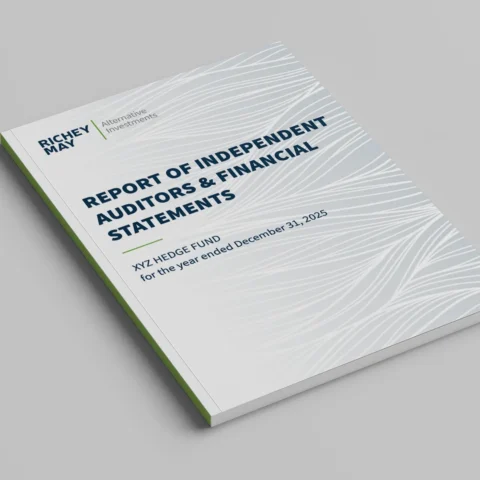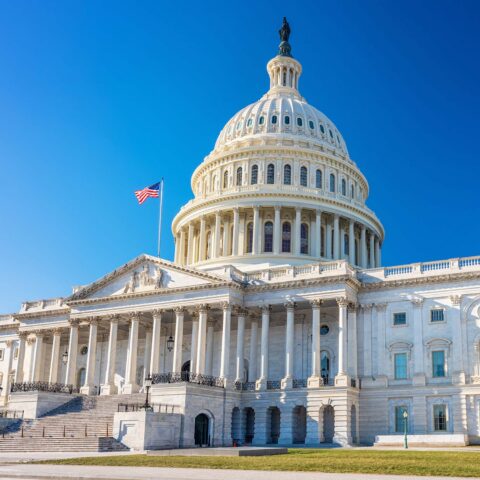October 29, 2018
By: Sean Sawey – Alternative Investments Tax Lead
Hedge Fund, Private Equity, Venture Capital and Real Estate Fund Managers should be very excited about the new opportunities that have arisen from the tax reform that was passed at the end of 2017. There are newfound chances to cash out unrealized gains and put them to work within certain low-income areas (called Opportunity Zones) while deferring taxes until December 31, 2026. The below is a compilation of some of the major highlights from the 2017 tax reform legislation, the Tax Cuts and Job Act (“TCJA”), along with additional information from the recently released proposed regulations related to the new section 1400Z-2 of the Internal Revenue Code. Please note that this is not an all-inclusive list of all of the proposed regulations or areas of concern related to investing in Opportunity Zones (“OZ”) or Qualified Opportunity Funds (“QOF”).
What are Opportunity Zones (“OZ”)?
An Opportunity Zone is an economically distressed community where new investments, under certain conditions, may be eligible for preferential tax treatment. Localities qualify as Opportunity Zones if they have been nominated for that designation by the state and that nomination has been certified by the Secretary of the U.S. Treasury via his delegation of authority to the Internal Revenue Service. There are currently more than 8,700 areas across all 50 states, territories and the District of Columbia that are designated as Opportunity Zones.
What are Qualified Opportunity Funds (“QOF”)?
Qualified Opportunity Funds are investment vehicles (Partnerships, LLCs and Corporations) that hold a minimum of 90% of their assets in Qualified Opportunity Zone Property and make investments into these Opportunity Zones. Qualified Opportunity Zone Property is (a) newly issued stock, (b) newly issued partnership interest or (c) business property.
How do you qualify to become a Qualified Opportunity Fund (“QOF”)?
To become a Qualified Opportunity Fund and invest in eligible property/businesses located in an Opportunity Zone, the taxpayer would need to self-certify. In other words, no approval or action by the IRS is required. To self-certify, the taxpayer must complete Form 8996 (currently only in draft form) and attach this form to the taxpayers federal income tax return for the taxable year. Investments are not limited only to real estate; they can also be made into Opportunity Zone Businesses, but the transaction needs to be made with an unrelated party to qualify. An Opportunity Zone Business is a business that owns or leases substantially all (defined as 70% or more) of its tangible property in Qualified Opportunity Zone Business Property.
What are the main tax benefits of making an investment in an Opportunity Zone or a Qualified Opportunity Fund?
- Temporary Tax Deferral – A temporary deferral of capital gains that are reinvested into an Opportunity Zone or a Qualified Opportunity Fund. A taxpayer may make an election (which is done on the taxpayer’s tax return) to defer paying tax on capital gains and use these gains to reinvest into an Opportunity Zone or a Qualified Opportunity Fund. The IRS has recently clarified that taxpayers can use Short Term, Long Term and Section 1256 gains to invest into an OZ or QOF. The proposed regulations are still unclear if the IRS would consider Section 1231 gains as capital gains for this purpose, but this may be clarified with future guidance from the IRS. The tax attributes of these deferred gains are to remain intact during the taxpayer’s investment into the Opportunity Zone or a Qualified Opportunity Fund. In other words, Short Term gains will stay Short Term regardless of how long the taxpayer holds the new investment.
- Basis Step-Up – Capital gains that are reinvested in an Opportunity Zone or a Qualified Opportunity Fund are eligible to receive a step-up in tax basis after a minimum of 5 years. At the 5-year mark, the taxpayer will get to step-up their basis by 10%, and if the investment is held for at least 7 years the taxpayer will get an additional 5% step-up in basis. This will allow the taxpayer to exclude up to 15% of the original gain from taxation. It is currently still unclear if the tax that will need to be paid will be based on the rates at the time the gain was deferred or the rates that are in effect when the deferred gain is recognized. We expect additional future guidance in this area to clarify the proper tax rates before the deferral period ends in 2026.
- Permanent Exclusion of Gain from Investments in an Opportunity Zone or a Qualified Opportunity Fund – There will be a permanent exclusion of gain from taxable income from the exchange or sale of an investment in an Opportunity Zone or a Qualified Opportunity Fund if that investment is held for at least 10 years and a proper election is made on the taxpayers return. This gain exclusion only applies to gains created by the investment into an Opportunity Zone or a Qualified Opportunity Fund and would not apply to the gain from the previously sold property that was invested in an OZ or QOF. Additional capital investments made into the Opportunity Zone or a Qualified Opportunity Fund that were not part of the originally deferred gains are not excludable gains.
Other Important things to Note Related to Investing in an Opportunity Zone or a Qualified Opportunity Fund
- 180 Day Rule – Investors must invest their capital gains into an Opportunity Zone or a Qualified Opportunity Fund within 180 days of realizing the capital gain they wish to defer. If the capital gain comes from a partnership investment, the taxpayer has 180 days from the partnership’s year-end (which in most cases would be 12/31 of the given tax year). A partnership has the option of making this investment at the partnership level or allocating the gains to its partners, allowing the partners the chance to invest their distributive share of the gain into an Opportunity Zone or a Qualified Opportunity Fund.
- 90% Test – Qualified Opportunity Funds must invest at least 90% of their assets in one or more Qualified Opportunity Zones or in Qualified Opportunity Zone Property. This is determined by the average percentage of qualified Opportunity Zone Property held on the last day of the 6th month after the initial election is made and the last day of the year. If the Qualified Opportunity Fund fails to pass this test, it will be subject to a penalty. When a Qualified Opportunity Fund purchases property the original use of the property must begin upon acquisition or substantial improvements must be made to the property within 30 months. Substantial improvement is defined in the proposed regulations as doubling the basis in the property. Land is excluded from the calculation for this substantial improvement requirement, making it easier for these investments to be substantially improved.
- Valuation for the 90% Test – The proposed regulations require the fund to value the assets as reported on their applicable financial statements, which need to be prepared in accordance to GAAP. In order to qualify these financial statements need to either (a) be filed with the SEC or (b) be audited by a public accounting firm. If the fund cannot comply with either of these rules or does not have applicable financial statements, then the fund must use the cost of acquiring the assets for the purpose of this calculation. Currently comments are being sought as to whether the adjusted basis or some other valuation method is a more accurate measurement than cost.
- Working Capital – The newly released proposed regulations clarify that Qualified Opportunity Funds are granted a 31 month safe harbor for holding cash that will be used to substantially improve the Opportunity Zone Property. The proposed regulations allow the Qualified Opportunity Fund to set aside cash for the purpose of substantially improving the property, so long as there is a written plan that identifies the amount of working capital that will be held for acquisition, construction or other substantial improvements to be made to the property within the Opportunity Zone.
Other Important Tax Considerations
- Liquidity – Separate investment vehicles should be established for these investments by fund managers. The only liquidity from these investments will be the potential cash flow from the income generated from these properties. Investors should be aware that in order to reap the full benefit of the tax exclusion, these investments need to be held for 10 or more years. Investors should be committed to investing for the long haul, and partnership agreements should be structured to restrict investor redemptions until the property/investment is sold.
- Additional State Filings- If a Qualified Opportunity Fund is investing in real estate in Opportunity Zones, each year the fund will have income or loss from its investments. This income/loss will be sourced to the state in which the Opportunity Zone is located and will create additional tax return filing requirements.
- Passive Income/Loss – The income/loss generated from the properties located within Opportunity Zones will be passive in nature, and passive loss rules will apply.
- Foreign Investors – Fund managers should be aware that there are no perceived benefits to allowing foreign investors into these Qualified Opportunity Funds. The income from the activities will be considered Effectively Connected Income (ECI), and the share of income allocated to the foreign investors will be subject to U.S. taxation. In addition, there is no benefit to the exclusion of capital gain on these investments to foreign investors, as these tax incentives benefit U.S. taxpayers.
The proposed regulations have provided much needed guidance that should allow fund managers to become more comfortable with establishing/making investments into Qualified Opportunity Funds. Many fund managers have been sitting on the sidelines waiting for additional clarity, and now that numerous areas of concern have been clarified, we feel that there will be a tremendous influx of capital into these Opportunity Zones. While there are still areas of uncertainty and issues that will need further clarification from the IRS, there appears to be enough of an incentive to no longer take a wait and see approach as the clock is ticking. For a full copy of the newly released proposed regulations visit https://www.irs.gov/pub/irs-drop/reg-115420-18.pdf.
For any questions regarding the information contained in this white paper, or regarding the public accounting services Richey May provides to the Alternative Investments industry, please contact Stephen Vlasak.




